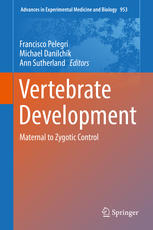

Most ebook files are in PDF format, so you can easily read them using various software such as Foxit Reader or directly on the Google Chrome browser.
Some ebook files are released by publishers in other formats such as .awz, .mobi, .epub, .fb2, etc. You may need to install specific software to read these formats on mobile/PC, such as Calibre.
Please read the tutorial at this link: https://ebookbell.com/faq
We offer FREE conversion to the popular formats you request; however, this may take some time. Therefore, right after payment, please email us, and we will try to provide the service as quickly as possible.
For some exceptional file formats or broken links (if any), please refrain from opening any disputes. Instead, email us first, and we will try to assist within a maximum of 6 hours.
EbookBell Team

4.1
80 reviewsThis book provides a comprehensive overview of topics describing the earliest steps of fertilization, from egg activation and fertilization to the activation of the zygotic genome, in various studied vertebrate model systems. The contribution of maternal and paternal factors and their role in the early embryo as parental DNA becomes modified and embryonic genes become activated is fundamental to the initiation of embryogenesis in all animal systems. It can be argued that this is a unique developmental period, when information from the parents is compressed to direct the development of the body plan of the entire organism, a process of astounding simplicity, elegance and beauty. In addition to their fundamental scientific interest, many frontiers of biomedicine, such as reproductive biology, stem cells and reprogramming, and the understanding of intergenerational diseases, depend on advances in our knowledge of these early processes. Vertebrate Development: Maternal to Zygotic Control brings together chapters from experts in various disciplines describing the latest advances related to this important developmental transition. Each chapter is a synthesis of knowledge relevant to all vertebrates, with details on specific systems as well as comparisons between the various studied vertebrate models. The editorial expertise encompasses the fields of major vertebrate model systems (mammalian, amphibian and teleost) ensuring a balanced approach to various topics. This unique book—with its combination of in-depth and up-to-date basic research, inter-species comprehensiveness and emphasis on the very early stages of animal development—is essential for research scientists studying vertebrate development, as well as being a valuable resource for college educators teaching advanced courses in developmental biology.